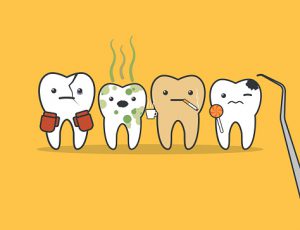Smoking cigarettes is one of the leading causes of multiple diseases and premature deaths in the United States today. According to the Centers for Disease Control and Prevention (CDC), more than 16 million Americans are living with smoking-related diseases and an estimated 480,000 deaths will occur each year as a result of smoking.
Smoking cigarettes affects many aspects of health. Direct association has been established between smoking and cancers of the lung, mouth, nose, throat, larynx, esophagus, colon and rectum, stomach, pancreas, cervix, bladder, kidney and blood.
Many lung conditions are either caused or aggravated by cigarette smoke. It irritates bronchial airways and stimulates mucous production leading to decreased elasticity and functional failure. Patients suffering from COPD, asthma, chronic bronchitis or emphysema have a much higher risk of dying when repeatedly exposed to smoke.
Smokers are also at greater risk for cardiovascular disease. Smoking damages blood vessels, making them stiff and narrow. This can obstruct blood flow which may result in elevated blood pressure, heart attacks or strokes.
Smoking tobacco is an addiction similar to heroin and cocaine. It can be successfully treated, however, majority of cases require three and more attempts.
Studies have shown that these five, common sense steps, provide the best chance for quitting smoking for good:
1. Get ready: set a quit date and throw out all cigarettes and ashtrays from your home.
2. Get support: tell your family, friends and doctor about quitting plans; search the internet for advice.
3. Learn new behaviors: distract yourself from the urge to smoke; exercise or go for a walk.
4. Get medication: combining medication like nicotine patches with behavioral adaptation and family support quadruples your chances of success.
5. Be prepared for relapse and difficult situations- most people try to quit a few times before succeeding.
Flushing Hospital Medical Center provides extensive assistance for people willing to quit smoking. We offer a free smoking cessation support group every Wednesday. The hospital also offers one-on-one sessions, both in person or by phone. For more information please call, 718-206-8494.
All content of this newsletter is intended for general information purposes only and is not intended or implied to be a substitute for professional medical advice, diagnosis or treatment. Please consult a medical professional before adopting any of the suggestions on this page. You must never disregard professional medical advice or delay seeking medical treatment based upon any content of this newsletter. PROMPTLY CONSULT YOUR PHYSICIAN OR CALL 911 IF YOU BELIEVE YOU HAVE A MEDICAL EMERGENCY.


